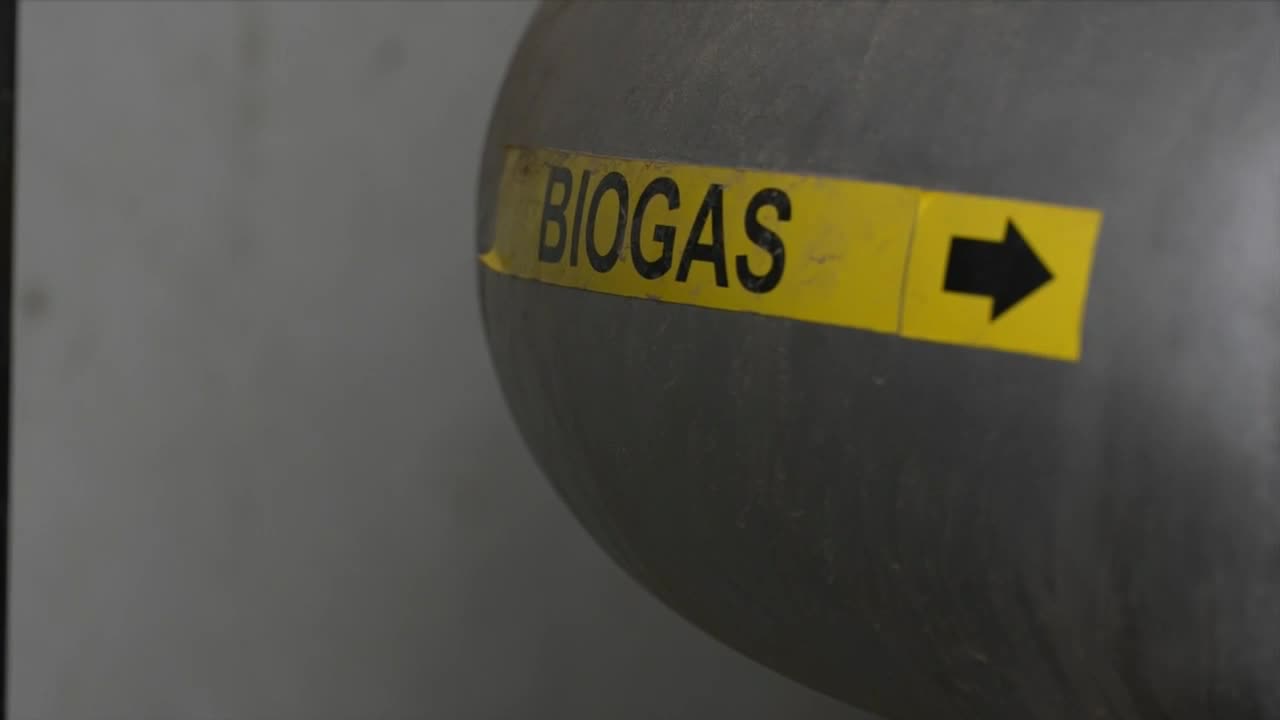ENGLEWOOD, Colo. — South Platte Renew, which serves 300,000 customers in both Littleton and Englewood, has transformed wastewater treatment into a success story in renewable energy.
"Flushing the toilet, showers, dishwashers, all those appliances that send water down into the sewer, it all ends up here," explained director Pieter Van Ry. "We take that raw wastewater, and then over the course of a day, we turn it back into clean water that we discharge to the South Platte River."
During that process, the solids in that wastewater give off biogas, a combination of methane and carbon dioxide.
"What we used to do historically was we flared that methane gas into the atmosphere," said Van Ry.

The team at South Platte Renew considered how to capture the methane gas and reuse it, eventually proposing a biogas pipeline injection system in 2019. It was approved, and the $7.8 million price tag was paid for through sewer funds from Englewood and Littleton. It was the first of its kind system in the state of Colorado.
"The natural gas that comes off our processes has contaminants and impurities in it," Van Ry explained. "We actually clean it to a pipeline-grade natural gas and then inject that directly into the Xcel natural gas pipeline."
Engineering supervisor Bryan Schmerber walked Denver7 through the process.
"[The system] treats the biogas to renewable natural gas standards, and a regenerative thermal oxidizer incinerates the waste stream from the biogas upgrading system," said Schmerber.

While some of that renewable gas is fed into Xcel's natural gas pipeline, the majority of the revenue generated from the system comes from the Environmental Protection Agency.
"We sell what are called renewable identification numbers, essentially credits, and for each one of those credits, we get paid for that natural gas that we sell into the pipeline through this program," said Van Ry.
In 2023, the system generated a total of $2.07 million in revenue, and in 2024, it generated $2.11 million. For 2025, South Platte Renew's conservative estimate sits around $1.5 million to $1.7 million.
The financial benefit is only part of the impact.
"Rather than using geological natural gas, it utilizes a renewable source of gas with a lower carbon footprint. So overall, it provides a substantial impact for carbon emissions," said Schmerber. "It's 3,700 metric tons of carbon dioxide removed each year through this system. The way we like to put it is how many emissions or how many miles it has offset for a car's driving. So we have offset 56 million car miles of carbon emissions since the beginning of this project."
According to Schmerber, that's like driving from Earth to Venus.
The system has now paid for itself ahead of schedule and is making "positive" revenue.

"We raise rates generally every year to keep up with the cost of inflation, the cost of just technology and regulations. Because of this system providing some revenue, that rate increase is slightly less," said Van Ry.
South Platte Renew has now helped other water treatment facilities in the state get their systems up and running.
"By taking this leading-edge approach, we are able to prove that these systems do work and that they actually do generate revenue and can be a long-term sustainable technology," said Van Ry.



